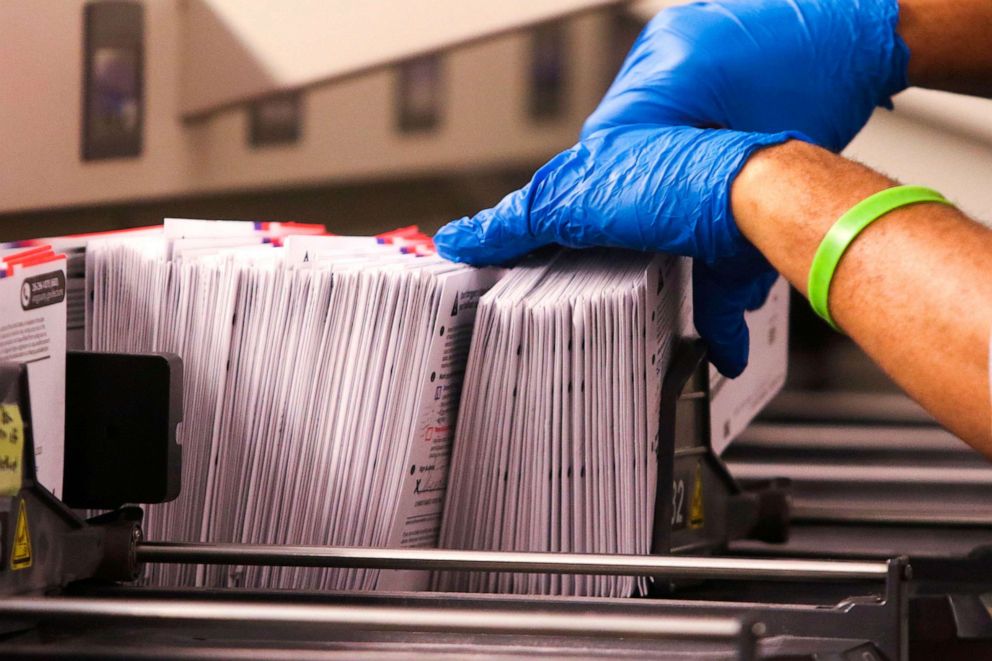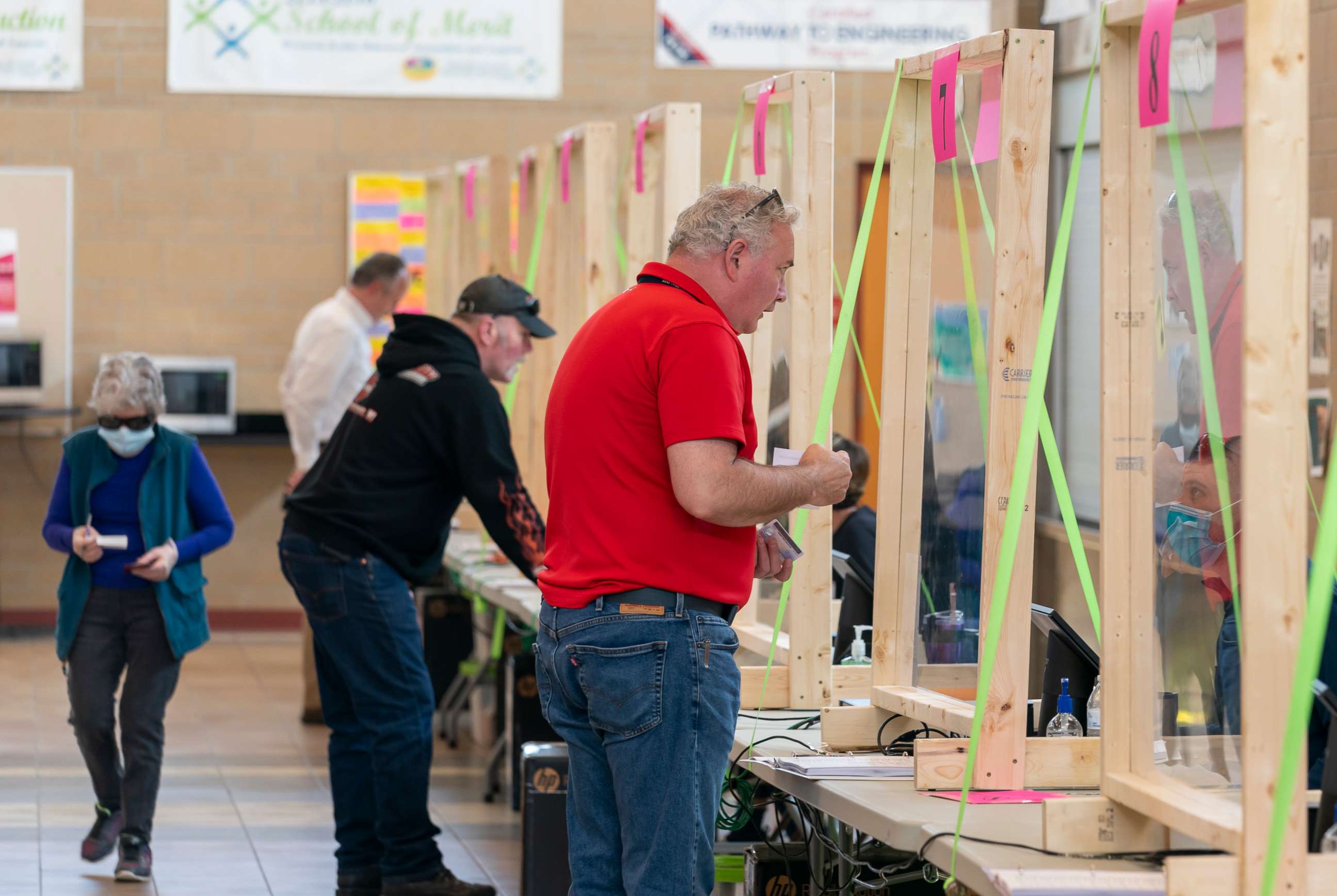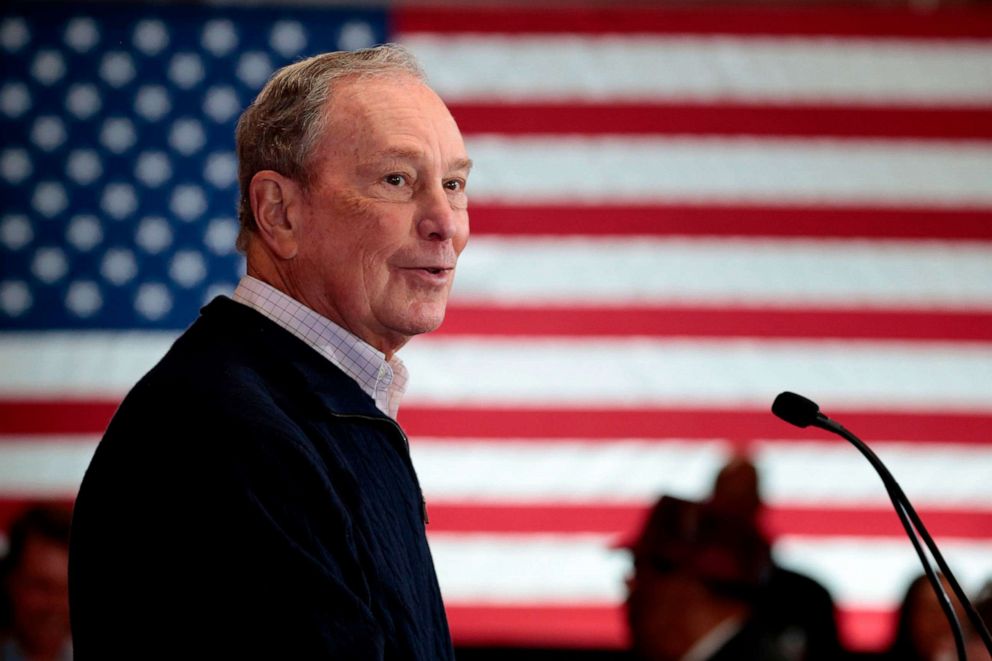The Note: Both voting and not voting amid COVID-19 gets messier
Tuesday brings a delayed Ohio primary and a special election in Maryland.
The TAKE with Rick Klein
Voting in the age of coronavirus is proving to be a mess that is getting messier -- and potentially more dangerous to voters.
Tuesday brings delayed primary voting in Ohio, plus a special election to fill the late Rep. Elijah Cummings’ House seat in Maryland.
In-person voting will again take place despite stay-at-home orders, though both jurisdictions pushed aggressively to mail ballots to as many voters as possible in a short period of time. It hasn’t been cheap or easy, and turnout appears to be down -- highlighting the obstacles that many other states will confront as they seek to expand ballot access in the months ahead.
Meanwhile, the New York State Board of Elections moved Monday to cancel the primary that was originally to take place this week and had been rescheduled for June. That has reopened rifts inside the Democratic Party, with Sen. Bernie Sanders’ former campaign calling it “a blow to American democracy” that should be remedied by the Democratic National Committee.

“Just last week Vice President (Joe) Biden warned the American people that President Trump could use the current crisis as an excuse to postpone the November election,” Sanders senior adviser Jeff Weaver said in a statement. “Well, he now has a precedent thanks to New York State.”
The issue in New York is tied to the fact that Sanders wants to accumulate delegates for leverage at the convention, even though he has endorsed Biden.
So while leaders in Maryland and Ohio largely came together to give voters more options, officials in New York moved to protect voters by seeking to not hold an election at all without much of substance at stake.
In all cases, states and municipalities are not equipped to change processes quickly. President Donald Trump has signaled he doesn’t want to see the federal government making vote-by-mail any easier, leaving state and local governments mostly on their own, and without many good options.
The RUNDOWN with MaryAlice Parks
During this pandemic with a virus still lurking and unemployment spiking, Mike Bloomberg's self-funded presidential campaign has agreed to pay for health insurance through November for former campaign staffers, according to a campaign spokesperson Monday.
Bloomberg had previously said his team would maintain coverage for his former staff through April. That initial pledge came after a group of former staffers filed two separate class-action lawsuits against the billionaire, claiming he reneged on commitments made during the hiring process to keep them employed with benefits through November.

Peter Romer-Friedman, an attorney representing a group of former campaign staffers suing Bloomberg, called Monday’s news to pay for health care benefits through the election a "step in the right direction."
"It's not too late for the campaign to put these staffers back to work and make them whole. They are eager to get back to work, help defeat Donald Trump, and elect Joe Biden in November," Romer-Friedman told ABC News.
The TIP with Meg Cunningham
Ohio's voting period, which has been underway in some facet since mid-February, comes to a close on Tuesday. The Republican-controlled state was the first to effectively cancel its in-person voting and quickly pivoted to a nearly all mail-in election. It hasn't been a smooth process.
Voting rights experts and local officials have been disappointed by the low turnout, saying they could have used more time to spread the word. As of Monday night, only 25% of Ohioans had requested an absentee ballot in the mail. In 2016, total turnout in the presidential primary came to 44%.

On Friday, Secretary of State Frank LaRose issued a call for help to some members of Congress, asking for additional help from the U.S. Postal Service to increase staffing to help process ballots and get them into the hands of voters.
If the country is to find itself in the same position come November, voting rights advocates would like to see ballots mailed directly to voters, eliminating the need for voters to first send in requests for ballots.
THE PLAYLIST
ABC News' "Start Here" Podcast. Tuesday morning’s episode features ABC News Chief White House correspondent Jonathan Karl, who examines President Donald Trump’s announcement Monday about COVID-19 testing. ABC News Transportation correspondent Gio Benitez explains the changes we will soon be seeing aboard airplanes. And, a conversation with University of Chicago student Julia Attie, who tells us why she won’t be paying her tuition for this quarter. http://apple.co/2HPocUL
Five Thirty Eight Politics Podcast. A slew of recent polling in swing states shows President Donald Trump losing ground to presumptive Democratic nominee Joe Biden. In this installment of the FiveThirtyEight Politics podcast, the crew asks whether the narrative of Trump’s handling of the coronavirus crisis has already been cemented, and what Trump could do to turn his numbers around. They also weigh how much responses to the pandemic -- among the public and politicians -- has been rooted in partisanship. https://apple.co/23r5y7w
WHAT YOU NEED TO KNOW TODAY
- Former Indiana Gov. Mitch Daniels, now the president of Purdue University, will appear on ABC's "Good Morning America."
- Sen. Amy Klobuchar, D-Minn., and her husband John Bessler appear on ABC's "The View."
- Former Vice President Joe Biden will hold a virtual town hall on the impact of COVID-19 on women.
- President Donald Trump meets with Florida Gov. Ron DeSantis at 11 a.m. in the Oval Office and he delivers remarks in the Rose Garden about the Paycheck Protection Program at 3 p.m.
- Mail-in ballots for the Ohio state primary are due.
- A special election for Maryland's 7th Congressional District will be held from 7 a.m. to 8 p.m. The seat was held by the late-Rep. Elijah Cummings.
- Sen. Mitt Romney, R-Utah, appears at the Georgetown Institute of Politics and Public Service for a conversation on American leadership during times of crisis at 5 p.m.
Download the ABC News app and select "The Note" as an item of interest to receive the day's sharpest political analysis.
The Note is a daily ABC News feature that highlights the day's top stories in politics. Please check back tomorrow for the latest.




